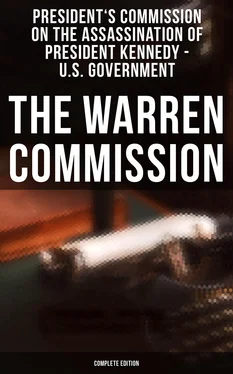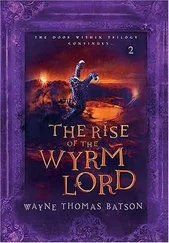Mrs. Oswald. Yes, that is Lee's handwriting. It is a pity that I don't understand it.
Is that all? It seems to me there was more.
Mr. Rankin. Mrs. Oswald, that is all of the historic diary that we have received. There are some other materials that I will call your attention to, but apparently they are not part of that.
I offer in evidence Exhibit 24.
The Chairman. It may be admitted and take the next number.
(The document referred to was marked Commission Exhibit No. 24, and received in evidence.)
Mrs. Oswald. That is all that only has reference to this? Or is that everything that Lee had written?
Mr. Rankin. No, it is not all that he ever wrote, but it is all that apparently fits together as a part of the descriptive diary in regard to the time he was in Russia.
Do you know when your husband made Exhibit 24, as compared with doing it daily or from time to time—how it was made?
Mrs. Oswald. Sometimes two or three days in a row. Sometimes he would not write at all. In accordance with the way he felt about it.
The Chairman. Mrs. Oswald, you said a few moments ago it was a pity that you could not read this. Would you like to have the interpreter read it to you later, so you will know what is in it?
You may, if you wish.
Mrs. Oswald. Some other time, later, when I know English myself perhaps.
The Chairman. You may see it any time you wish.
Mr. Rankin. Mr. Chairman, I just heard Mr. Thorne ask if there was any reason why they could not have photocopies of the exhibits. I know no reason.
The Chairman. No, there is no reason why you cannot. You may have it.
Mr. Thorne. Thank you.
Mr. Rankin. Mrs. Oswald has raised the question about whether this was complete. And this was all that was given us, as Exhibit 24, but we are going to check back on it to determine whether there was anything that may have been overlooked by the Bureau when they gave it to us.
Mrs. Oswald, your husband apparently made another diary that he wrote on some paper of the Holland America Line. Are you familiar with that?
Mrs. Oswald. No.
Mr. Rankin. I will hand you Exhibit 25 and ask you if you recall having seen that.
Mrs. Oswald. I know this paper, but I didn't know what was contained in it. I didn't know this was a diary.
Mr. Rankin. Do you know what it was?
Mrs. Oswald. No.
Mr. Rankin. Possibly I misdescribed it, Mrs. Oswald. It may be more accurately described as a story of his experiences in the Soviet Union.
Mrs. Oswald. I don't know even when he wrote this, whether this was aboard the ship or after we came to the United States. I only know the paper itself and the handwriting.
Mr. Rankin. Do you know whether it is your husband's handwriting?
Mrs. Oswald. Yes.
Mr. Rankin. I offer in evidence Exhibit 25.
The Chairman. It may be admitted.
(The document referred to was marked Commission Exhibit No. 25, and received in evidence.)
Mr. Rankin. Do you recall how much money you and your husband had in savings when you left Moscow for the United States?
Mrs. Oswald. I don't know, because Lee did not tell me how much money he had, because he knew that if he would tell me I would spend everything. But I think that we might have had somewhere about 300 rubles, or somewhat more, 350 perhaps.
Mr. Rankin. How did you travel from Moscow to the United States?
Mrs. Oswald. I told you—from Moscow by train, through Poland, Germany, and Holland, and from Holland by boat to New York. From New York to Dallas by air.
Mr. Rankin. I think you told us by another ship from Holland. I wonder if it wasn't the SS Maasdam . Does that refresh your memory?
Mrs. Oswald. Perhaps. I probably am mixed up in the names because it is a strange name.
Mr. Rankin. Do you recall that you exchanged United States money for Polish money during this trip?
Mrs. Oswald. Yes, in Warsaw, on the black market.
Mr. Rankin. Did you buy food there?
Mrs. Oswald. Yes. Some good Polish beer and a lot of candy.
By the way, we got an awful lot for one dollar, they were so happy to get it. More than the official rate.
Mr. Rankin. Did your husband drink then?
Mrs. Oswald. No. He doesn't drink beer, he doesn't drink anything, he doesn't like beer. I drank the beer. I don't like wine, by the way.
Mr. Rankin. Do you recall that you or your husband were contacted at any time in the Soviet Union by Soviet Intelligence people?
Mrs. Oswald. No.
Mr. Rankin. During the time your husband was in the Soviet Union, did you observe any indication of mental disorder?
Mrs. Oswald. No.
Mr. Rankin. How did he appear to get along with people that he knew in the Soviet Union?
Mrs. Oswald. Very well. At least, he had friends there. He didn't have any here.
Mr. Rankin. How much time did you spend in Amsterdam on the way to the United States?
Mrs. Oswald. Two or three days, it seems to me.
Mr. Rankin. What did you do there?
Mrs. Oswald. Walked around the city, did some sightseeing.
Mr. Rankin. Did anybody visit you there?
Mrs. Oswald. No.
Mr. Rankin. Did you visit anyone?
Mrs. Oswald. No.
Mr. Rankin. What hotel did you stay in?
Mrs. Oswald. We didn't stop at a hotel. We stopped at a place where they rent apartments. The address was given to us in the American Embassy.
Mr. Rankin. Do you recall what you paid in the way of rent?
Mrs. Oswald. No, Lee paid it. I don't know.
Mr. Rankin. How did your husband spend his time when he was aboard the ship?
Mrs. Oswald. I was somewhat upset because he was a little ashamed to walk around with me, because I wasn't dressed as well as the other girls. Basically, I stayed in my cabin while Lee went to the movies and they have different games there. I don't know what he did there.
Mr. Rankin. In Exhibit 25, the notations on the Holland American Line stationery, your husband apparently made some political observations. Did he discuss these with you while he was on the trip?
Mrs. Oswald. No.
Mr. Rankin. Mr. Chairman, it is time for a recess.
The Chairman. Yes. We will take a recess now.
(Brief recess.)
The Chairman. The Commission will be in order.
We will continue.
Mr. Rankin. Mrs. Oswald, can you tell us what your husband was reading in the Soviet Union after you were married, that you recall?
Mrs. Oswald. He read the Daily Worker newspaper in the English language.
Mr. Rankin. Anything else?
Mrs. Oswald. It seems to me something like Marxism, Leninism, also in the English language. He did not have any choice of English books for reading purposes.
Mr. Rankin. Was he reading anything in Russian at that time?
Mrs. Oswald. Yes, newspapers, and nothing else.
Mr. Rankin. No library books?
Mrs. Oswald. No. It was very hard for him.
Mr. Rankin. Did he go to any schools while he was in the Soviet Union that you know of?
Mrs. Oswald. No.
Mr. Rankin. I hand you Exhibit 26 and ask you if you can tell us what that is.
Mrs. Oswald. The title of this document is shown here, "Information for those who are departing for abroad. Personal data—name, last name, date of birth, place of birth, height, color of eyes and hair, married or not, and purpose of the trip."
Mr. Rankin. What does it say about the purpose of the trip—do you recall?
Mrs. Oswald. Private exit.
Mr. Rankin. Do you recall what members of your family are referred to there under that question?
Mrs. Oswald. It shows here "none." I think before this was filled out—this was before June's birth.
Mr. Rankin. That doesn't refer then to members of your family, like your uncles or aunts, or anything like that?
Mrs. Oswald. No.
Mr. Rankin. Mr. Chairman, I offer in evidence Exhibit 26.
Читать дальше












